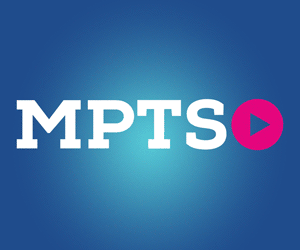The global film and TV industries are entering an unprecedented period of extreme difficulty. The spread of the Covid-19 coronavirus has closed borders, restricted air travel and prevented large gatherings. Cinemas are closing and film releases are being pushed back. Festivals, exhibitions and programme markets have been cancelled. More worryingly, productions are being delayed, halted indefinitely or simply abandoned. We have heard of millions of pounds of projects which will now not happen.
We may be looking at a worst-case scenario of an almost total shutdown of production. This will not be over in a few weeks or months. It could extend into next year. The idea that we will back to business as usual by the autumn seems to be receding rapidly, as the possibility of a second wave of coronavirus infection appearing as we enter next winter, is now being raised.
An industry that was booming with record levels of business is already grinding to a halt and this reversal of fortune has been sprung upon us in little more than a fortnight.
UK Screen Alliance and Animation UK have surveyed the industry and found a wide range of levels of preparedness, from almost zero to comprehensive well thought out phased plans for business continuity if their staff or customers become infected by the virus. These plans put company-relevant detail onto the government’s recommendations for social distancing and take sensible precautions to segment their business operations to avoid cross-contamination which would halt the entire company. Face-to-face meetings and viewings are being replaced by calls or video conferences. Remote working features highly in contingency plans, with some companies already being well set up for this.
2D and 3D animation are more able to control their own production schedules and as long as their staff stay healthy, will be able to continue working, aided where appropriate by working from home on a remote connection, but for stop-motion, you need to be in the studio.
For companies servicing the film and TV industry, high occupancy rates are essential. It is not like retail where the goods are still there to sell on another day. If a studio, edit suite, VFX or animation seat is empty for a day, a week or a month, that turnover is gone forever, but the overheads are still there. Even if a company has the capability of working via remote connections, if production stalls and the hiatus becomes extended and nothing new is being shot, VFX and post-production companies will find that the work and cash will soon dry-up.
It seems that hard choices are imminent in order to survive the sudden economic shock. UK Screen Alliance and Animation UK have reassessed our policy priorities to help the sector through this extremely difficult period. We will make strong representations to government to ease the financial burden on companies to help them weather this storm. Secondly, we will call upon Government to have a package of measures ready to jump-start our sector back into life as soon as the current difficulties have passed.
The film and TV industry was the strongest sector in its recovery from the 2008 financial crash, far exceeding the growth rate of the rest of the economy. We have confidence that we can do that again.
We are calling for a special task force of industry representatives and government to be set up and meet regularly to coordinate a sector-wide response. We will be the voice for post, VFX and Animation in that forum.
We will be asking for a package of financial support from the Government, such as an extension of the Budget measures on business rates relief, payment holidays and reductions in payroll and business taxes. We will liaise with broadcasters and content owners to achieve necessary variations in protocols to allow working from home where physical security measures like access control are inappropriate. We will also redouble our calls for funding to replace and exceed the EU structural funds and schemes like Creative Europe which we will lose by the end of this year. These will be vital in our recovery.
In hard times, it may be sensible to cut everything but core costs in order to survive, but we urge our member companies to continue to support UK Screen Alliance and Animation UK. We rely on your subscriptions to provide representation for your companies and there has never been a more important time than now to have a strong voice to government. We also urge non-member companies to join us to support our efforts, which will benefit the whole sector as we work together to get through this and return to success on the other side of the crisis.
Neil Hatton, CEO, UK Screen Alliance
Kate O’Connor, Executive Chair, Animation UK









